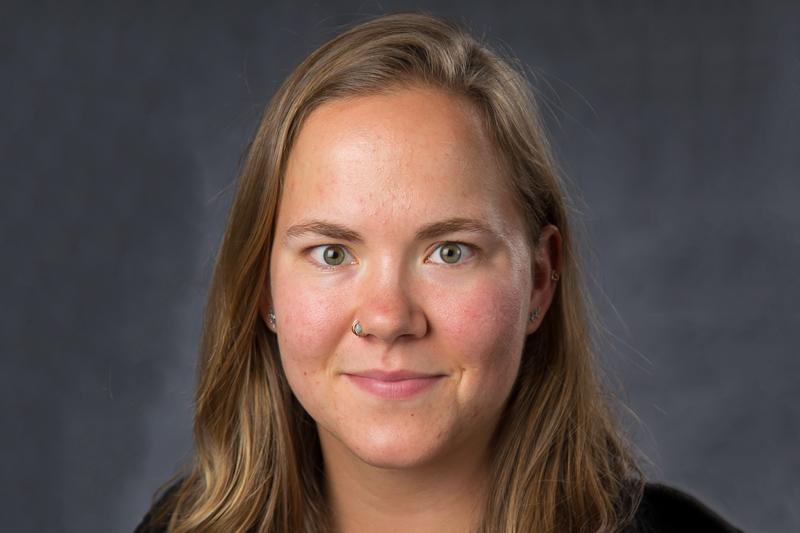-
About
- Departments & Offices
-
Academics
- Public Health
- Biomedical Sciences
- Physician Assistant
- Special Master’s (MBS)
-
Admissions & Financial Aid
- Tuition & Fees
-
Student Experience
-
- Student Resources by Program
- Academic & Student Support
- Wellness & Wellbeing
- Student Life
- Events & Traditions
-
-
Research
- Research Labs & Centers
- Tufts University-Tufts Medicine Research Enterprise
-
Local & Global Engagement
- Global Health Programs
- Community Engagement
Katie Stevenson, MD/MPH23, is the recipient of a 2023 USPHS Excellence in Public Health Award
For her efforts to protect, promote and advance the health and safety of all and for helping address public health issues in her community.

Katie Stevenson, who is pursuing her MD/MPH dual degree at the Tufts University School of Medicine, was awarded a 2023 Excellence in Public Health Award from the United States Public Health Service (USPHS).
This national award is given to students who advance the USPHS’ mission to protect, promote and advance the health and safety of our nation, and who are helping address public health issues in their community.
“It is an honor to have been nominated by Tufts for the Excellence in Public Health Service Award and to have subsequently been awarded it by the USPHS,” said Stevenson. “My public health training has often felt like the thread that has held together my medical training, and so it brings me much joy to see that aspect of my training honored in this way. I am very grateful to both the administration and faculty in both the MD/MPH and Maine Track programs for creating the incredible training environment that supported me in pursuing this work.”
The nominating committee felt strongly that Stevenson is well deserving of the award, noting her strong track record of research and advocacy for underserved populations.
During her first year at Tufts, Stevenson formed the Tufts Student Advocacy Collective and co-organized a Rethinking Advocacy in Medicine conference, which engaged over 100 participants across three medical schools and community health centers.
During the summer between her first and second year, Stevenson worked on a needs-assessment regarding childhood nutrition in the rural community of Caribou, Maine. Her time interviewing community members to get their insights into public health strategies to benefit the Caribou community, led her to stay in Caribou for her third-year Longitudinal Integrated Clerkship. She also used the social-ecological model to identify community strengths and needs and presented the work at the Maine American College of Physicians.
Stevenson took a gap year before her fourth year of medical school to gain experience outside of clinical training. She worked as a program director for Project REACH (Recovery, Engagement, Acceptance, Compassion, Hope), which provides low-barrier outreach and support for individuals who have struggled with opioid use in the York and Knox counties of Maine. As a part of her work, Katie collaborated with community partners such as county jails and treatment providers to improve the continuity of care for incarcerated individuals with substance use disorder. Still an advocate as well as a practitioner, Stevenson provided legislative testimony in support of removing barriers to syringe exchange programs throughout Maine.
“Katie demonstrates a unique combination of the ability to see the large-scale, structural and policy issues, but also the deeply human and emotional side of medicine,” said Assistant Professor Jessica Shah, MD, MPH, who was part of the nominating committee.
“The range of ways she has demonstrated excellence in public health: from research to her work as a practitioner in a Harm Reduction program, to her advocacy efforts, to her work educating others about these important issues, to her direct interpersonal clinical skills—this spectrum of strengths truly sets her apart,” said Tisch College of Civic Life Program Manager Jennifer Greer-Morrissey, Ed.M., who was also part of the committee. “It is very rare for someone to excel in so many of these areas!”
The committee is proud of all that Stevenson has accomplished, but they also cannot wait to see what her future will bring.
“Looking ahead, I am applying to Family Medicine residency programs with the intention of practicing full-spectrum family medicine, including obstetrical care,” said Stevenson. “When I envision my future work, I see myself as a community-based family physician, spending much of my clinic time in a community setting such as a school-based health center or mobile substance use treatment unit. After my time working with Project REACH, I feel deeply committed to continuing work around substance use recovery and correctional health reform. In my experience, the resilient and community-driven nature of rural communities creates an environment where community-led systems changes can have a substantial impact on the health of that community. I am excited to use my public health tools, clinical expertise, and emotional skillset to become a community leader, learner, and member in such a place.”